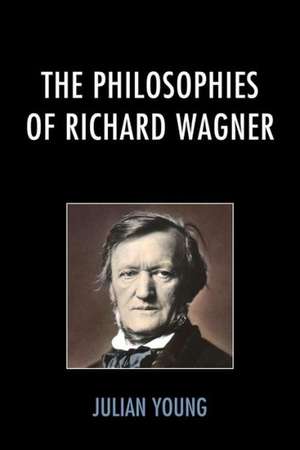The Philosophies of Richard Wagner
Autor Julian Youngen Limba Engleză Hardback – 8 sep 2014
Preț: 699.17 lei
Preț vechi: 908.02 lei
-23% Nou
Puncte Express: 1049
Preț estimativ în valută:
133.79€ • 140.04$ • 111.35£
133.79€ • 140.04$ • 111.35£
Carte tipărită la comandă
Livrare economică 31 martie-14 aprilie
Preluare comenzi: 021 569.72.76
Specificații
ISBN-13: 9780739199923
ISBN-10: 0739199927
Pagini: 170
Dimensiuni: 155 x 231 x 18 mm
Greutate: 0.41 kg
Editura: Rowman & Littlefield
ISBN-10: 0739199927
Pagini: 170
Dimensiuni: 155 x 231 x 18 mm
Greutate: 0.41 kg
Editura: Rowman & Littlefield
Notă biografică
Descriere
Julian Young presents Richard Wagner as an important philosopher of art and life, first as a utopian anarchist-communist and then as a Schopenhauerian pessimist. Understanding Wagner's philosophy is crucial to understanding his operas, as it is to understanding Nietzsche, Schopenhauer, and Heidegger.
